Undergrad Research Program
Background
Even from the early beginnings of Tecnológico de Monterrey's research initiatives, it has been clear that it is critical to involve undergraduate students in these efforts to provide new knowledge and innovation for the field of science, and for the community.
This program combines all the different institutional structures through which students can impact the current and future research of our university, with the goal of facilitating the integration of a larger number of students into existing and new projects, and to increase multidisciplinary collaboration between them.
The program includes students from the different majors within the TEC educational offer, including all programs in Engineering, Health, Business, Social Sciences, Creative Studies and Built Environment.
Objective
Through a future-centered analysis of current problems, a growing knowledge of the world's current connectivity technologies, a strong conviction for generating social impact, and the insatiable drive which characterizes our young students, undergraduates in Tecnológico de Monterrey nurture and increase the impact of scientific research within our university's laboratories, all around the country.
This program seeks to identify and channel the research abilities of young students, long before they enroll in graduate studies, to provide early preparation in their path to becoming the Mexican researchers of the future, both within our country and at an international level.
Reach Out
In addition to being part of research projects and programs, students have the chance of undergoing international experiences which will help him increase the impact of his scientific work, and that of Tecnológico de Monterrey, both during his studies and in his future career.
Participation in this program includes:
- Being part of cutting-edge research projects.
- National and international projects.
- Scientific Publication opportunities in both conferences and journals.
- Professional development focused on scientific and R&D industries.
- Possibility of obtaining credits with equivalence in the undergraduate curriculum.
- Possibility of obtaining certifications and diplomas beyond those offered by the undergraduate curriculum.
Study Lines
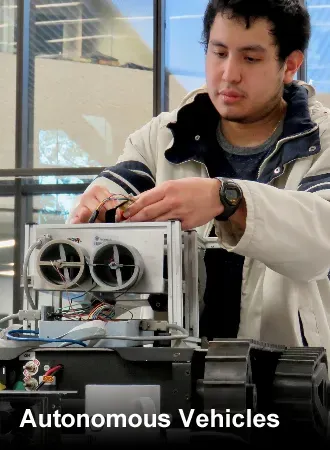
The Autonomous Vehicles Research Line focuses on the development and improvement of trajectory-control algorithms for predefined paths and for paths defined in real time through environment analysis. The group’s work involves aerial, terrestrial and subaquatic vehicles, integrating the latest technologies in load-transportation devices (such as drones) and in sensor systems for three-dimensional analysis.
Efforts directed towards entrepreneurship include proposals for application of autonomous vehicles in high-risk industrial analysis tasks as well as in search-and-rescue activities.
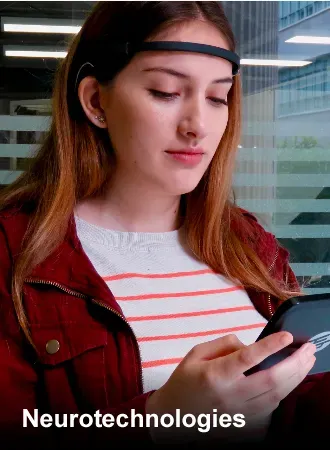
The Neurotechnology Research Line focuses on the exploration of the functioning of the human brain, through non-invasive devices, which monitor neural signals. Additionally, efforts include the integration of brain activity within virtual and electromechanical systems, with the goal of allowing environment manipulation through thoughts.
Complementary activities include the development of original neural-signal-acquisition devices, pursuing the exploitation of market opportunities in Latin American regions and promoting scientific research and development with a focus on entrepreneurship.
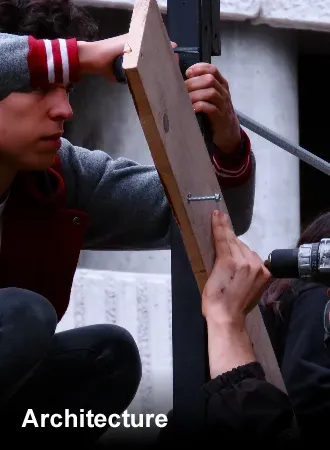
The Architecture Research Line seeks to develop and implement new proposals in materials and construction methods to create the future of built environment in Mexico, Latin America and the world. Through its research and development projects, the group achieves theoretical advances while promoting practical applications and impact in cities, in the short term.
In order to achieve entrepreneurial significance, professors and students collaborate with architectural firms and construction companies both nationally and internationally to license and commercialize the products of their multiple research proposals.
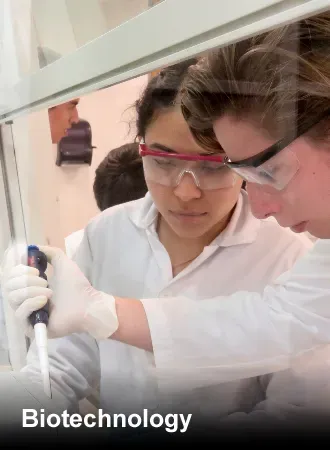
The Biotechnology Research Line focuses on working directly with micro- and nano-scaled biological units for the design and production of biomaterials and bioprocesses mainly applied in the areas of medicine, pharmaceutics, food, and organic waste. Specific activities include research in biological technologies for early detection of diseases, in bioprocesses for the development of vaccines, in tissue engineering and stem cell cultivation, and in genetic engineering for the production of food with greater added value.
In the area of entrepreneurship, multiple projects led by professors and students have grown into companies which now focus on the development of materials and processes for the food industry, on the development of disposable products with low environmental impact, and on the development of pharmaceutics focused on chronic diseases.

The Finances Research Line seeks to explore and develop economic and financial models supporting the understanding of global-market dynamics and the capital-administration, decision-making process within different business and government levels. Additionally, the group also focuses in tackling economic risk management and investment problems from a social-centered point of view.
In the field of entrepreneurship, the recent increase in the use of digital and mobile platforms has generated new projects focused in offering individuals -in scales of thousands of users at a time- smart, data-driven support in the administration of their capital.
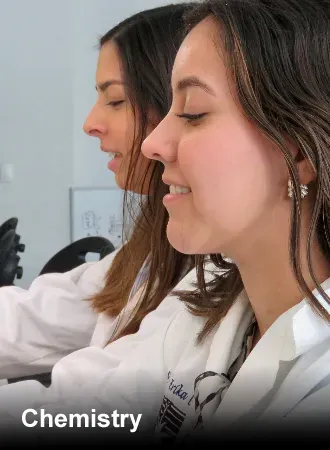
The Chemistry Research Line focuses on exploring the basic properties of substances and mixtures with the goal of augmenting human capacity for material and molecule design in applications for construction, pharmaceutics and other industrial fields. This line’s activities include experimentation and theoretical description of the behavior of matter and its reactions within different contexts.
In the area of entrepreneurship, various projects have focused on the development of materials and processes for printing-media security, on the development of personal-use products with reduced environmental impact, and on the implementation of processes with greater energy efficiency, specifically for industrial infrastructure.
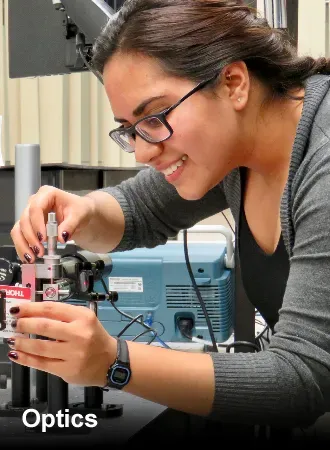
The Optics Research Line focuses on exploring and developing different ways of applying light in micro-manipulation systems as well as in quantum computing and systems for micro- and nano-structured material characterization, for high-quality-production industrial processes and for the development of new, cutting-edge-technology products. Through the understanding and the theoretical analysis of optical processes and phenomena in various controlled environments, the goal is to evaluate and generate physical characteristics and behaviors in materials and processes.
In the area of entrepreneurship, projects have allowed professors as well as students to create their own spin-offs and service companies from technologies developed in the areas of data-transmission through optical media and of quality-assessment for microelectronics.
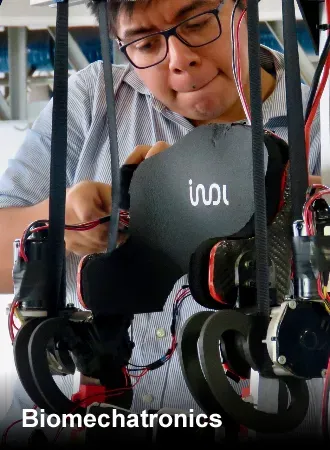
The Biomechatronics Research Line focuses on the implementation and development of human-use, robotic devices (mainly exoskeletons), primarily focused on allowing people with motion disabilities to recover healthy function and on safeguarding the physical integrity of workers involved in heavy-load activities. Additionally, the group seeks to test each developed device in a clinical environment and with human subjects, in order to characterize its functionality and to evaluate its benefit on the user.
In the area of entrepreneurship, the group works to create short-term ways through which this technology may have an impact in as many people with disabilities as possible, both in Mexico and in Latin America. The focus is on low-cost models taken to limited-resource states and countries through collaborations with clinics and medical centers.
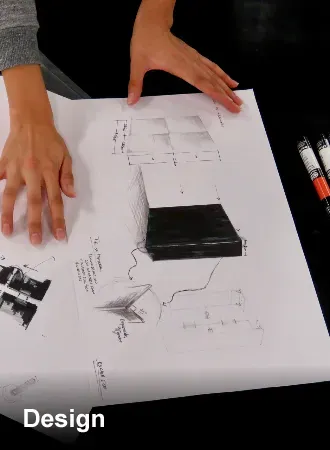
The Design Research Line seeks to generate new paradigms in material design, in production processes and with respect to aesthetic language while focusing on product and user experience. Activities focus on the theoretical exploration of concepts immediately applied to products and experiences in practical ways. Producing and prototyping are fundamental parts of this research line.
In the area of entrepreneurship, contact with industry is significant and direct, allowing a large number of projects to become relevant and accepted proposals for international companies and resulting in the creation of new, advanced-design Mexican studios on the global vanguard.
- News of Tec de Monterrey in Research in Professional Dr. Terashima and the Intelligent Systems Research Group look for students to join their research and development projects. Click Here for more information,
- The importance of doing research in the early stages of undergraduate college education.
Research is the intellectual activity of creating new knowledge. Skills and competences which are promoted through this cognitive activity cover multiple and diverse dimensions. Critical thinking is one of the most important skills developed through a formation in research. Internalizing and thoroughly understanding concepts written and described by someone else, and how they relate with different topics and subjects of research, is a skill which is critical to an up-and-coming researcher, as well as to professionals in any area of expertise. Questioning the validity of information and sources, their scope and limitations, their universe of applicability, etc; this is key to a better development of scientific and business activities.
Through the application of the scientific method -in which hypotheses are formulated from the beginning and then tested and confirmed- young student-researchers must also develop the creative and intellectual prowess to perform educated guesses and then propose the correct experiments to confirm or reject their conjectures. Working on these abilities and skills during the early stages of college education is an excellent way to mold the student into his best possible professional persona, so that he can face realities which contain more questions than answers. It also prepares him to answer them in data-driven and systematic ways, through an educated understanding of phenomena and basic science.
Laboratory work, experimental design, project planning and management, and analysis of obtained results, as well as proper and formal writing reports that will effectively communicate knowledge and processes to others, are abilities that we actively seek to develop and instill in students within our Undergraduate Research Program, for both their present research activities and their future professional work.